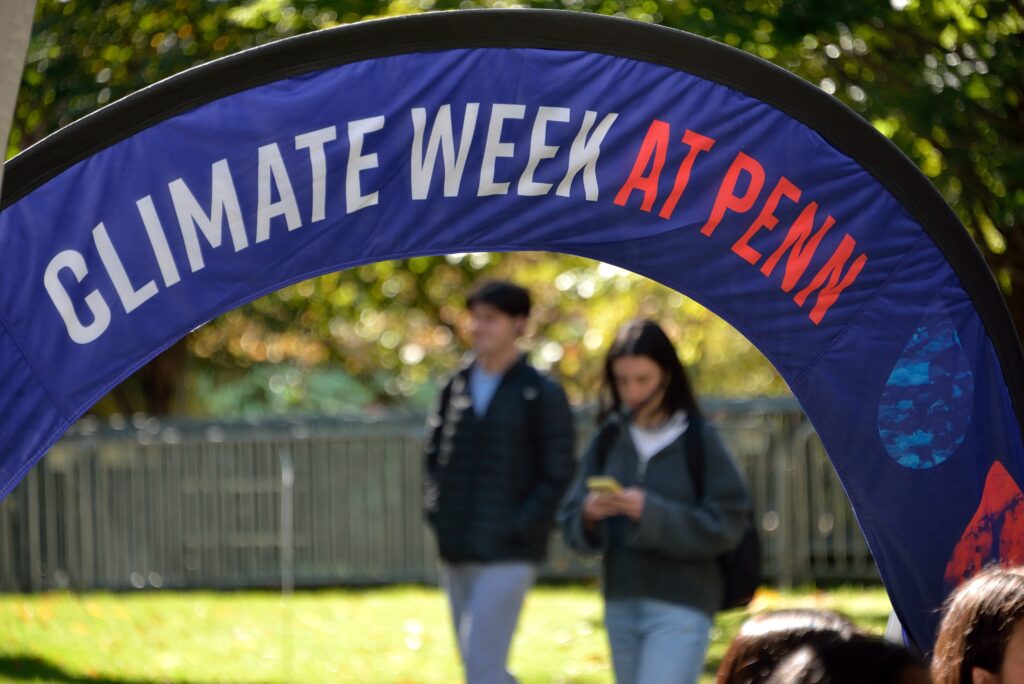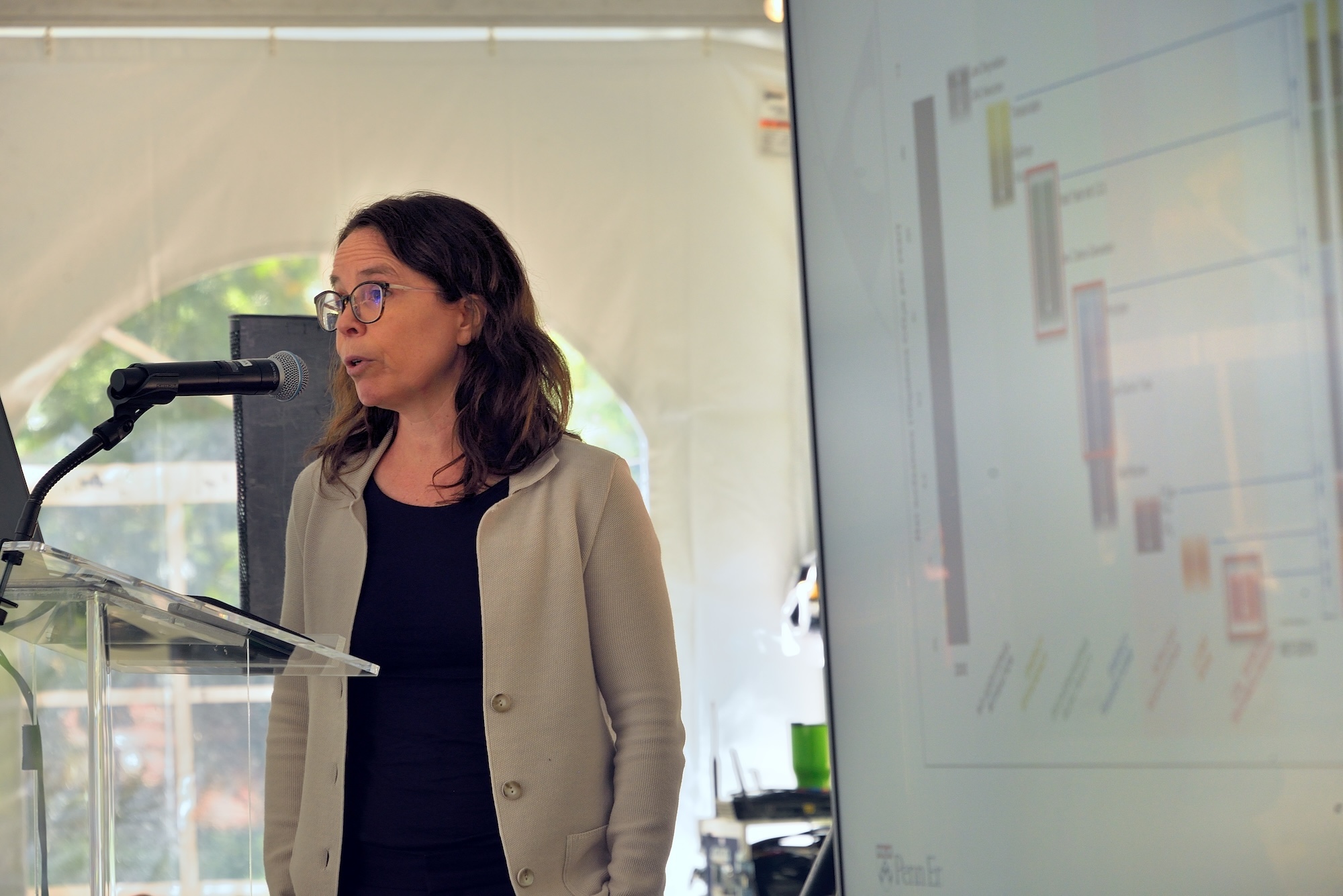
As society grapples with the impacts of a worsening climate—from the increased frequency and intensity of extreme weather events to rising sea levels and deadly heat waves—the need for actionable solutions has never been greater, Penn researchers say.
At a Climate Week event, Penn’s Climate Solutions Showcase, faculty and researchers from the School of Engineering and Applied Science and Weitzman School of Design presented innovative strategies to combat the causes and effects of climate change. From reducing carbon emissions to designing sustainable infrastructure, the event highlighted how Penn experts are at the forefront of creating a more resilient and sustainable future.
Kicking off the session, Jen Wilcox, the Presidential Distinguished Professor of Chemical Engineering and Energy Policy and a leading expert in carbon capture, discussed comprehensive decarbonization strategies. She said that to meet net-zero goals, “we no longer have the luxury of just avoiding emissions. We have to actively remove CO2 from the atmosphere.”
She explained that, while decarbonizing the energy sector has made strides, hard-to-abate sectors like cement and steel require new solutions. “We have to think beyond emissions avoidance,” she said, stressing the need to actively remove CO2 from the atmosphere through innovative techniques.
Wilcox’s Clean Energy Conversions Lab focuses on leveraging industrial waste byproducts to absorb CO2, a process that not only reduces atmospheric carbon but also transforms waste into usable building materials like synthetic aggregates. A key aspect of their work involves developing enrichment and separation processes, a fundamental part of chemical engineering, to extract alkalinity—magnesium and calcium—from waste feedstocks, which are then used to react with CO2 and permanently store it in construction materials.
This story was written by Nathi Magubane. To read the full article, please visit Penn Today.

